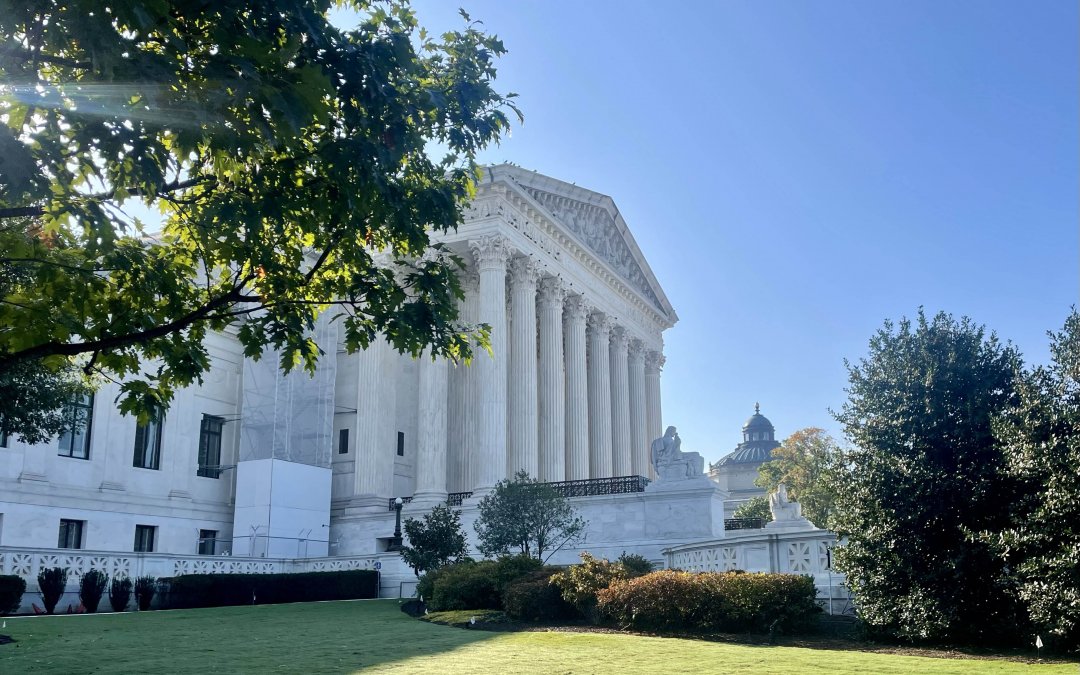WASHINGTON — The Supreme Court considered whether a judge can overturn a jury’s murder acquittal on the basis that it contains inconsistencies, and is therefore “repugnant,” and allow the prosecution of a Georgia man for a second time.
In McElrath v. Georgia, Damian McElrath was prosecuted after he stabbed his adoptive mother to death in 2012. The jury determined McElrath to be “not guilty by reason of insanity” on the malice murder charge–the most serious murder charge in Georgia, but “guilty but mentally ill” on the aggravated battery and felony murder charges.
The state courts then ruled that the one acquittal and two convictions contradict one another. Now, McElrath faces a retrial.
McElrath claims Georgia’s decision to overturn the acquittal violates the Double Jeopardy Clause of the Fifth Amendment, which bars defendants from being prosecuted twice for substantially the same crime.
The most fundamental principle of the double jeopardy law is that once the jury reaches an acquittal, that decision is final, said Richard Simpson, the lead attorney for McElrath. Double jeopardy is always analyzed on an offense-by-offense basis, he said, and comparing verdicts is an overstep.
“It’s a legal fiction here, that we have two verdicts and we’re going to look at the content, compare them, and based on that comparison, refuse to honor a jury verdict,” Simpson said. “We’re not aware of any other state that allows that, and we think it’s a clear-cut violation of double jeopardy.”
Stephen Petrany, the lead attorney for Georgia, acknowledged the verdict would have been upheld if there was just one charge, but the multiple charges changed the case.
Petrany argued that there was no verdict reached in the first place. A jury cannot conclude that McElrath was both insane and not insane, and therefore the jury never reached a legitimate conclusion, he said.
“I would hasten to add it is not clear that the rule is different so much as other states just haven’t addressed this issue,” he said.
While double jeopardy cases have come to the Supreme Court before, Petrany said, this case’s special findings distinguish it.
Several justices pushed back on the notion that this case stood out and that a verdict was never reached.
“Why does that make a difference?” Justice Neil Gorsuch said. “An acquittal is an acquittal is an acquittal– since time immemorial. Now you’re telling us an acquittal isn’t an acquittal if it’s a special verdict form?”
Gorsuch said jury acquittals are checks on the overreach of the prosecution and judicial system. The jury could have reached their decision as a result of compromise or leniency, he said.
It is not a judge’s role to question the jury’s thinking with respect to inconsistent verdicts across different counts, Justice Ketanji Brown Jackson said.
“The jury was not asked for a special verdict from just the pure question of insanity in the way you sort of set it up at the beginning,” she said.
The immediate outcome of the case involves laws unique to Georgia, namely the state’s exception to the Double Jeopardy Clause. The Supreme Court’s decision will be released before its term ends next June.


